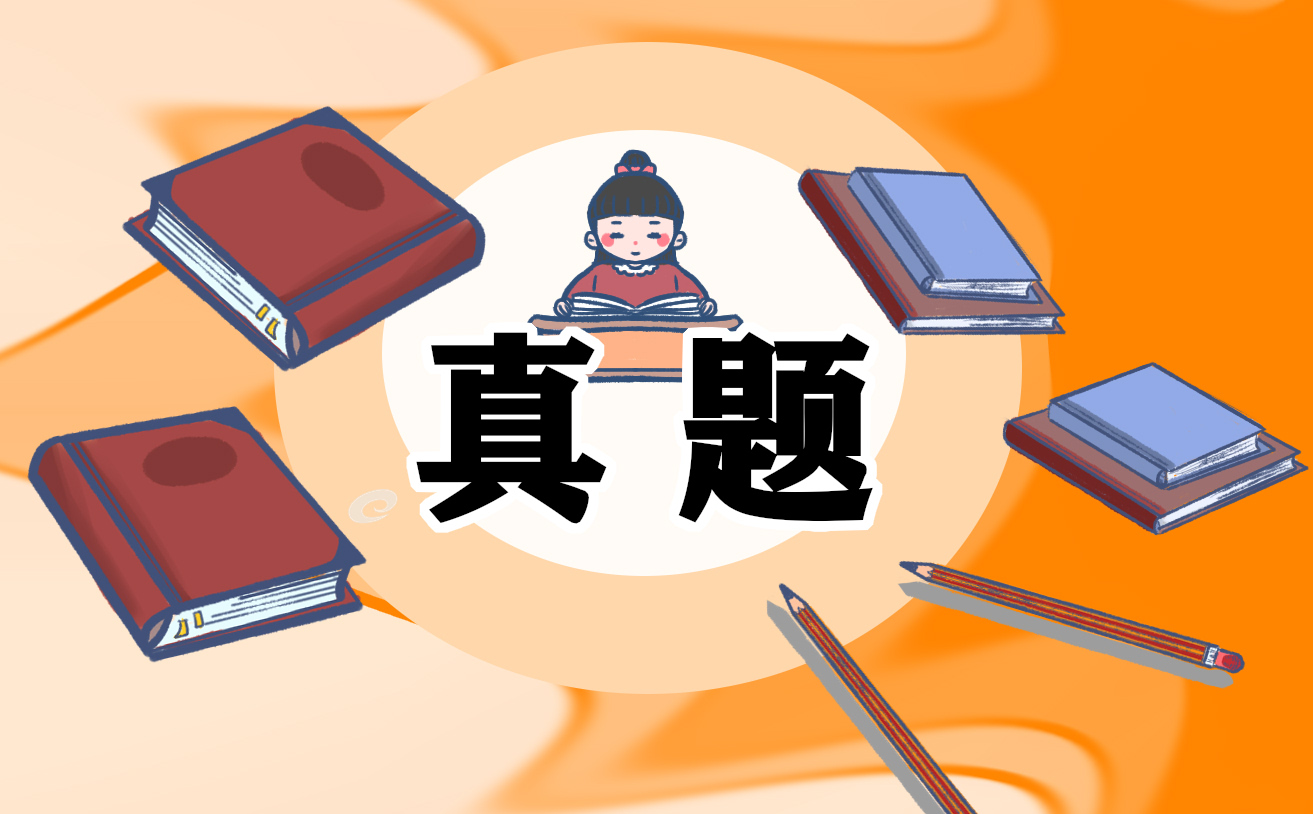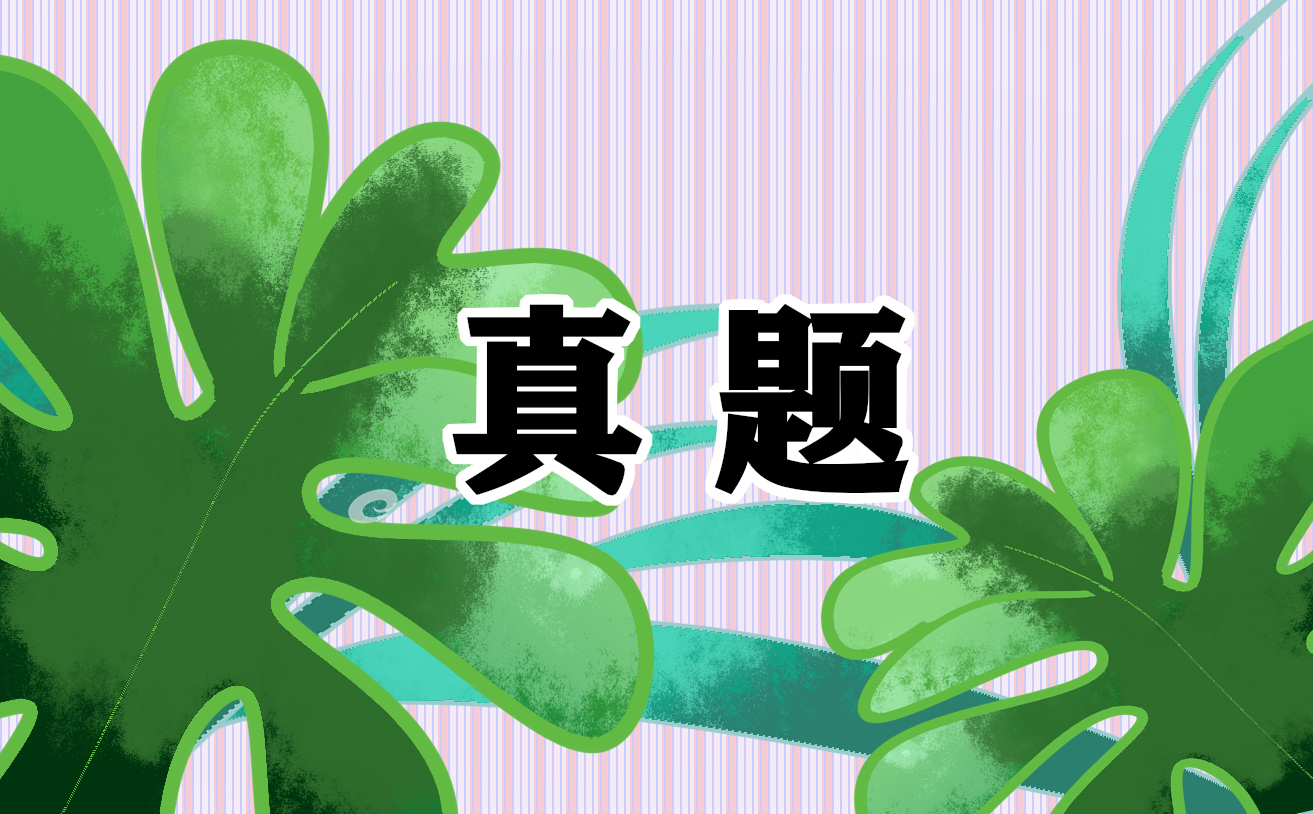考研英语考察的是建立在大纲要求词汇量上的长难句理解,对长难句的理解必得熟练掌握语法。无论是完形填空、阅读理解、翻译还是作文,都需要在不断提升阅读能力的基础上进行练习,下文是小编为你精心编辑整理的英一考研真题完形填空,希望对你有所帮助,更多内容,请点击相关栏目查看,谢谢!
英一考研真题完形填空1
Directions:
Read the following text. Choose the best word(s) for each numbered blank and mark A, B, C or D on ANSWER SHEET 1. (10 points)
People are, on the whole, poor at considering background information when making individual decisions. At first glance this might seem like a strength that 1 the ability to make judgments which are unbiased by 2 factors. But Dr. Uri Simonsohn speculated that an inability to consider the big 3 was leading decision-makers to be biased by the daily samles of information they were working with. 4 , he theorised that a judge 5 of apperaring too soft 6 crime might be more likely to send someone to prison 7 he had already sentenced five or six other defendants only to forced community service on that day.
To 8 this idea, he turned to the university-admissions process. In theory, the 9 of an applicant should not depend on the few others 10 randomly for interview during the same day, but Dr. Simonsoho suspected the truth was 11 .
He studied the results of 9,323 MBA interviews 12 by 31 admissions officers. The interviewers had 13 applicants on a scale of one to five. This scale 14 numerous factors into consideration. The scores were 15 used in conjunction with an applicant’s score on the Granduate Managent Adimssion Test, or GMAT, a standardized exam which is 16 out of 800 points, to make a decision on whether to accept him or her.
Dr. Simonsoho found if the score of the previous candidate in a daily series of interviewees was 0.75 points or more higher than that of the one 17 that, then the score for the next applicant would 18 by an average of 0.075 points. This might sound small, but to 19 the effects of such a decrease a candidate could need 30 more GMAT points than would otherwise have been 20 .
1. [A] grants [B]submits [C]transmits [D]delivers
2. [A] minor [B]objective [C]crucial [D] external
3. [A] issue [B]vision [C]picture [D]external
4. [A] For example [B] On average [C]In principle [D]Above all
5. [A] fond [B] fearful [C]capable [D] thoughtless
6. [A] in [B] on [C] to [D] for
7. [A] if [B] until [C] though [D] unless
8. [A] promote [B] emphasize [C] share [D]success
9. [A] decision [B] quality [C] status [D] success
10. [A] chosen [B] studied [C] found [D] identified
11. [A] exceptional [B] defensible [C] replaceable [D] otherwise
12. [A] inspired [B] expressed [C] conducted [D] secured
13. [A] assigned [B] rated [C] matched [D] arranged
14. [A] put [B] got [C] gave [D] took
15. [A] instead [B] then [C] ever [D] rather
16. [A] selected [B] passed [C] marked [D] introduced
17. [A] before [B] after [C] above [D] below
18. [A] jump [B] float [C] drop [D] fluctuate
19. [A] achieve [B] undo [C] maintain [D] disregard
20. [A] promising [B] possible [C] necessary [D] helpful
英一考研真题完形填空2
Directions:
Read the following text. Choose the best word(s) for each numbered blank and mark [A], [B], [C] or [D] on ANSWER SHEET 1. (10 points)
Though not biologically related, friends are as "related" as fourth cousins, sharing about 1% of genes. That is 1 a study published from the University of California and Yale University in the Proceedings of the National Academy of Sciences, has 2 .
The study is a genome-wide analysis conducted 3 1932 unique subjects which 4 pairs of unrelated friends and unrelated strangers. The same people were used in both 5 .While 1% may seem 6 , it is not so to a geneticist. As James Fowler, professor of medical genetics at UC San Diego, says, "Most people do not even 7 their fourth cousins but somehow manage to select as friends the people who 8 our kin."
The study 9 found that the genes for smell were something shared in friends but not genes for immunity. Why this similarity in olfactory genes is difficult to explain, for now. 10 Perhaps, as the team suggests, it draws us to similar environments but there is more 11 it. There could be many mechanisms working in tandem that 12 us in choosing genetically similar friends 13 than "functional kinship" of being friends with 14 !One of the remarkable findings of the study was that the similar genes seem to be evolving 15 than other genes. Studying this could help 16 why human evolution picked pace in the last 30,000 years, with social environment being a major 17 factor.
The findings do not simply corroborate people's 18 to befriend those of similar 19 backgrounds, say the researchers. Though all the subjects were drawn from a population of European extraction, care was taken to 20 that all subjects, friends and strangers were taken from the same population. The team also controlled the data to check ancestry of subjects.
Section II Reading Comprehension
1、What
2、Concluded
3、On
4、Compared
5、Samples
6、Insignificant
7、Know
8、Resemble
9、Also
10、Perhaps
11、To
12、Drive
13、Ratherthan
14、Benefits
15、Faster
16、understand
17、Contributory
18、Tendency
19、Ethnic
20、see
英一考研真题完形填空3
Directions:
Read the following text. Choose the best word (s) for each numbered blank and mark A, B, C or D on the ANSWER SHEET. (10 points)
Trust is a tricky business. On the one hand, it's a necessary condition 1 many worthwhile things: child care, friendships, etc. On the other hand, putting your 2, in the wrong place often carries a high 3.
4, why do we trust at all? Well, because it feels good. 5 people place their trust in an individual or an institution, their brains release oxytocin, a hormone that 6 pleasurable feelings and triggers the herding instruct that prompts humans to 7 with one another. Scientists have found that exposure 8 this hormone puts us in a trusting 9: In a Swiss study, researchers sprayed oxytocin into the noses of half the subjects; those subjects were ready to lend significantly higher amounts of money to strangers than were their 10 who inhaled something else.
11 for us, we also have a sixth sense for dishonesty that may 12 us. A Canadian study found that children as young as 14 months can differentiate 13 a credible person and a dishonest one. Sixty toddlers were each 14 to an adult tester holding a plastic container. The tester would ask, “What’s in here?” before looking into the container, smiling, and exclaiming, “Wow!” Each subject was then invited to look 15. Half of them found a toy; the other half 16 the container was empty-and realized the tester had 17 them.
Among the children who had not been tricked, the majority were 18 to cooperate with the tester in learning a new skill, demonstrating that they trusted his leadership. 19, only five of the 30 children paired with the “20”tester participated in a follow-up activity.
1. [A] on [B] like [C] for [D] from
2. [A] faith [B] concern [C] attention [D] interest
3. [A] benefit [B] debt [C] hope [D] price
4. [A] Therefore [B] Then [C] Instead [D] Again
5. [A]Until [B] Unless [C] Although [D] When
6. [A] selects [B] produces [C] applies [D] maintains
7. [A] consult [B] compete [C] connect [D] compare
8. [A] at [B] by [C]of [D]to
9. [A] context [B] mood [C] period [D] circle
10.[A] counterparts [B] substitutes [C] colleagues [D]supporters
11.[A] Funny [B] Lucky [C] Odd [D] Ironic
12.[A] monitor [B] protect [C] surprise [D] delight
13.[A] between [B] within [C] toward [D] over
14.[A] transferred [B] added [C] introduced [D] entrusted
15.[A] out [B] back [C] around [D] inside
16.[A] discovered [B] proved [C] insisted [D] .remembered
17.[A] betrayed [B]wronged [C] fooled [D] mocked
18.[A] forced [B] willing [C] hesitant [D] entitled
19.[A] In contrast [B] As a result [C] On the whole [D] For instance
20.[A] inflexible [B] incapable [C] unreliable [D] unsuitable
上一篇:历年英二考研真题完形填空
下一篇:解题技巧篇之完形填空


